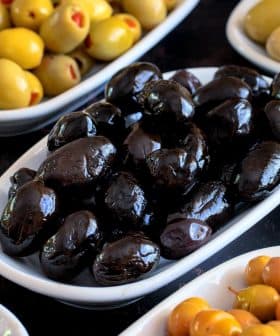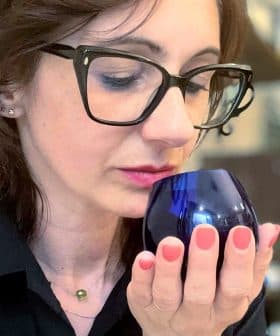An Olive Oil-Centered Curriculum in California Seeks to Help an Ailing County
Despite its agricultural mite, Kern County suffers from elevated levels of food insecurity, obesity and diabetes compared to the rest of the state.
 Buena Vista Edible Schoolyard integrates extra virgin olive oil into the curriculum to encourage consumption among young students.
Buena Vista Edible Schoolyard integrates extra virgin olive oil into the curriculum to encourage consumption among young students. The Edible Schoolyard Kern County promotes healthy eating habits among children through a curriculum that includes lessons on harvesting and cooking with extra virgin olive oil. The program, which includes 370 olive trees, aims to educate students on the seed-to-table cycle while addressing food insecurity and promoting healthy eating in Kern County.
In one of California’s least healthy counties, a grassroots effort is underway to promote healthy eating habits among children with extra virgin olive oil at its core.
The Buena Vista Edible Schoolyard serves about 1,000 students from kindergarten to sixth grade. The curriculum follows a unique educational-nutritional model, with students learning to harvest and cook with award-winning extra virgin olive oil made from the school’s 370 Manzanilla olive trees.
Students develop a love of seasonal, healthy recipes and take these eating habits home to improve the nutritional choices of their families.
The olive and olive oil-centric lessons represent a portion of what the public charter school calls its outdoor classroom. The program covers basic concepts of ecology, self-sufficiency, healthy eating and math skills while developing an appreciation for the environment.
This edible education program has a unique history. In 2012, mature olive trees were transplanted from Woodlake, in the Porterville area of California’s San Joaquin Valley, to Bakersfield 50 miles (80 kilometers) south.
See Also:California Producers Celebrate Olio NuovoDarcy Marshall’s olive trees became a source of food, inspiration and health for Edible Schoolyard Kern County students and the community.
“With his love of the land and healthy cuisine, Marshall was nurturing what would become a new business bringing benefits to thousands of families in our agricultural community and far beyond,” Dylan Wilson, the executive director of Edible Schoolyard Kern County, told Olive Oil Times,
“Marshall harvests and presses the hand-picked olives each year,” he added. “He named the bounty of his harvests Buena Vista extra virgin olive oil, [which] has taken first place at the Kern County Fair since 2015.”
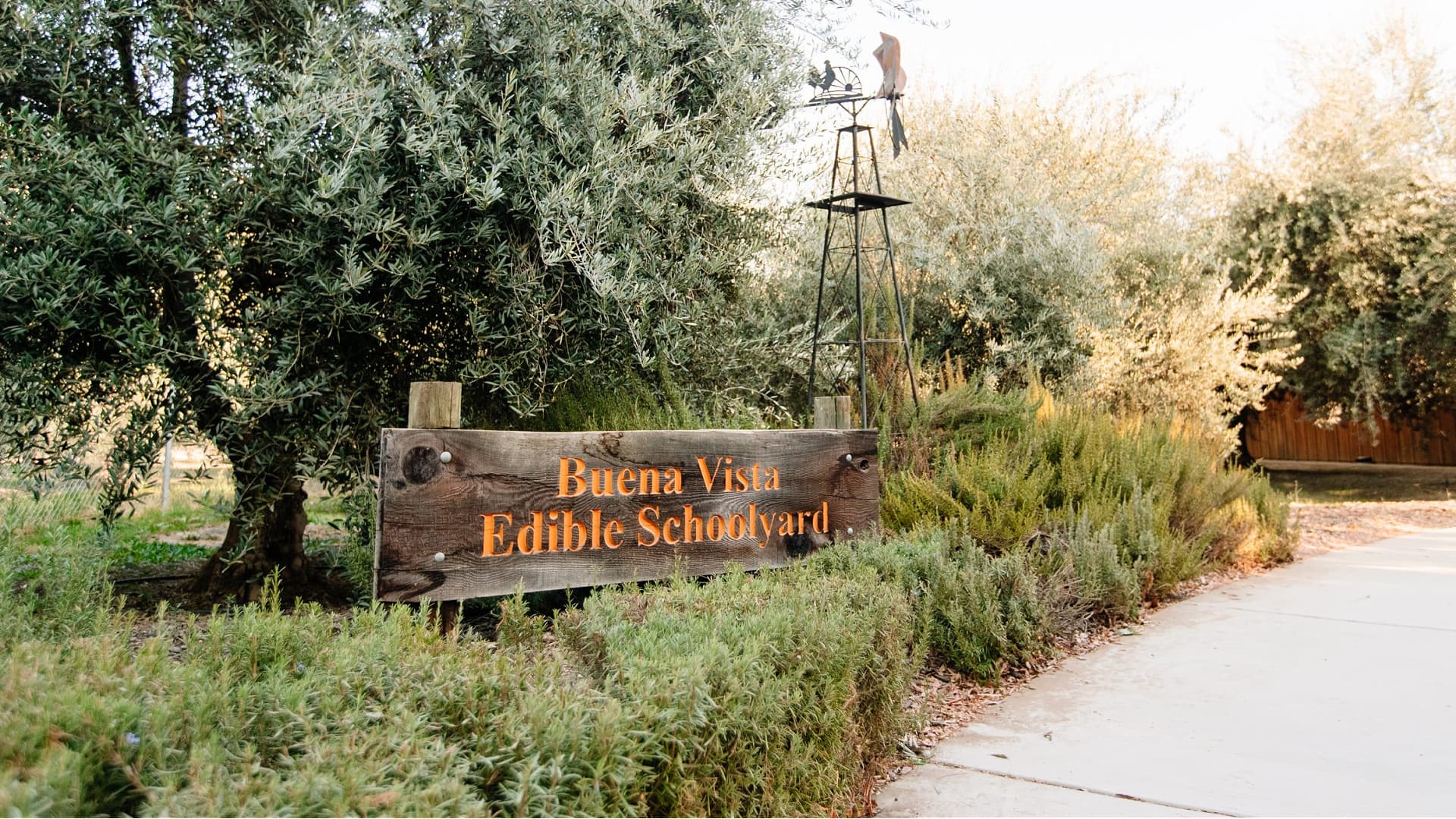
Buena Vista Edible Schoolyard serves about 1,000 students from kindergarten to sixth grade in Kern County, California.
Wilson described Buena Vista extra virgin olive oil as robust with aromatic flavors. “The oil is perfect for enjoying over a slice of freshly baked bread, in creamy vinaigrettes or hearty dishes such as soups and stews or grilled meats and roasted vegetables,” he said.
The 370 olive trees and the schoolyard they surround are intimately linked in the lives of Kern County families of all economic conditions and culinary talents. The trees offer an outdoor classroom for understanding the seed-to-table cycle.
Seed-to-table
The seed-to-table concept refers to a kitchen’s practice of utilizing ingredients cultivated in an onsite garden or farm. It involves chefs planting and harvesting seasonal produce based on what grows best in that specific season and region, meeting the high demand for fresh ingredients. This approach reduces reliance on external vendors, minimizes the carbon footprint, and safeguards against production shortages.
“Marshall’s landscaping team cares for, stewards and harvests with Edible Schoolyard Kern County’s sustainable philosophies and practices,” Wilson said. “Following pressing and bottling, Marshall donates the finished extra virgin olive oil to Edible Schoolyard Kern County.”
The school then sells the olive oil to residents in Kern County and Southern California, with proceeds going to its student programs and the local community.
Marshall’s wife, Barbara Grimm Marshall, founded Grow Academies: public charter schools for kindergarten through eighth-grade students in Arvin, Shafter and rural areas of Kern County.
The schools are built around a unique educational-nutritional model of edible schoolyards with olive trees on each campus.
At the Edible Schoolyard Kern County and the Grow Academies, students learn to develop healthy eating habits through nutrition, education and hands-on seed-to-table experiences.
Buena Vista extra virgin olive oil supplies the kitchen classrooms, in which young chefs learn to prepare, serve and enjoy the foods they have grown and harvested from the gardens to which they tend.
“Students develop a love of seasonal, healthy recipes and take these eating habits home to improve the nutritional choices of their families,” Wilson said.
Despite being one of the leading agricultural counties globally, Kern County struggles with a concerning reality: one in four community members faces food insecurity.
The county presents a compelling case for supporting initiatives to educate the community on healthy eating.
Access to fresh, nutritious and affordable food is lacking for many residents. The dangers are compounded by many families having a limited understanding of how to maximize the nutrient value of available produce.
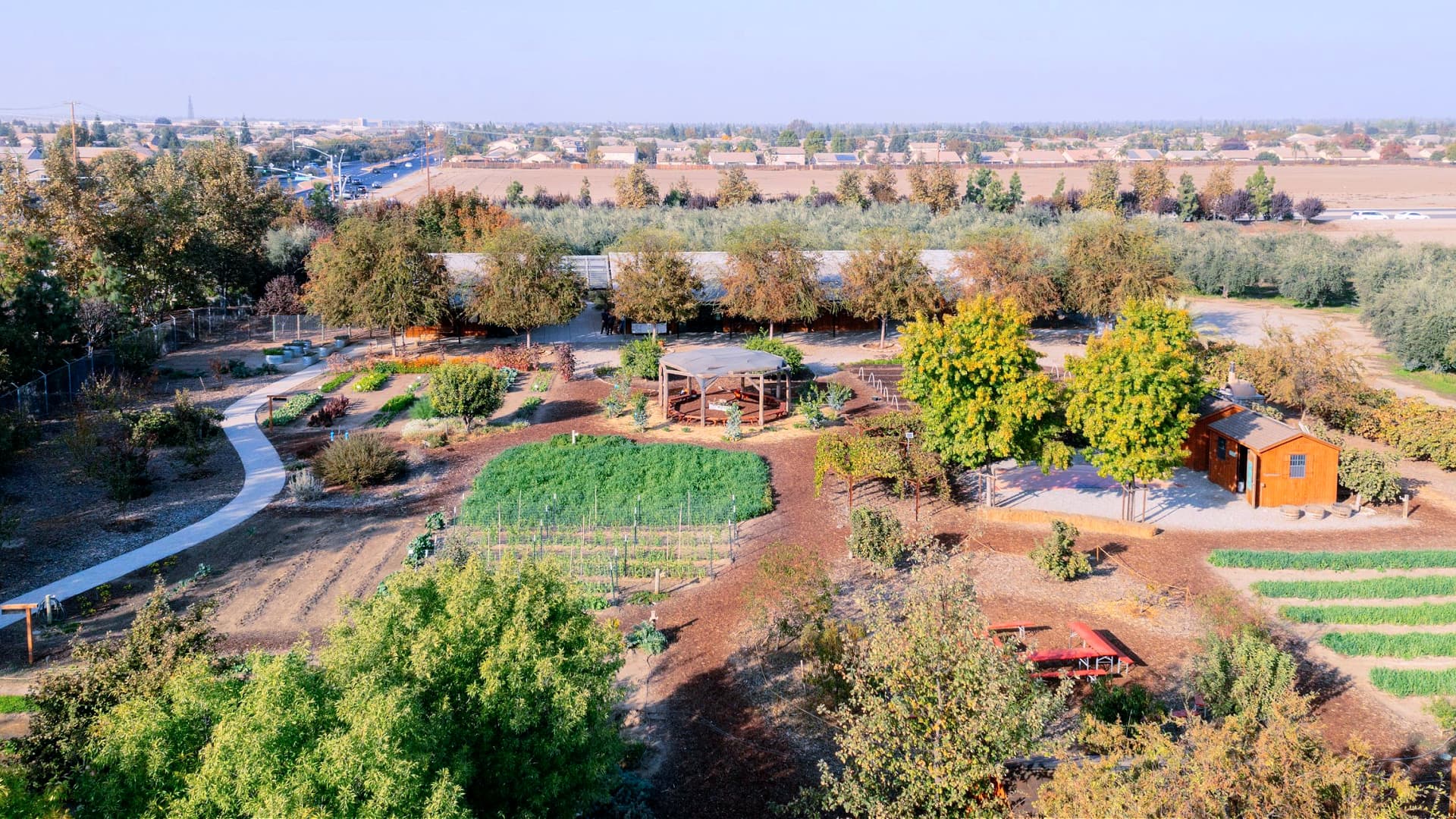
Despite a rich agricultural heritage, Kern County suffers from alarming rates of food insecurity, obestiy and diabetes.
Additionally, the county grapples with alarmingly high rates of obesity and diabetes, ranking 53rd out of 58 counties in California for overall wellness.
“Our mission is to proactively address these challenges by inspiring future generations to cultivate a healthy and positive relationship with their food,” Wilson said. “Looking ahead, we envision deepening our connections with community partners and expanding our array of programs.”
Since 2019, the Edible Schoolyard network has flourished, encompassing eight affiliated edible schoolyard programs.
“The growth has been remarkable, with the community wholeheartedly embracing the approach of imparting basic concepts related to the seed-to-table cycle to children,” Wilson said. “We firmly believe that by instilling these lessons in young minds, we are effecting positive changes in the eating habits of their families.”
Wilson said the project is farsighted, taking a multigenerational approach to more broadly improving awareness of extra virgin olive oil and healthy eating patterns.
“Moving forward, we remain dedicated to fostering a healthier and more resilient community, ensuring that our efforts contribute to a sustainable and positive future,” he said.
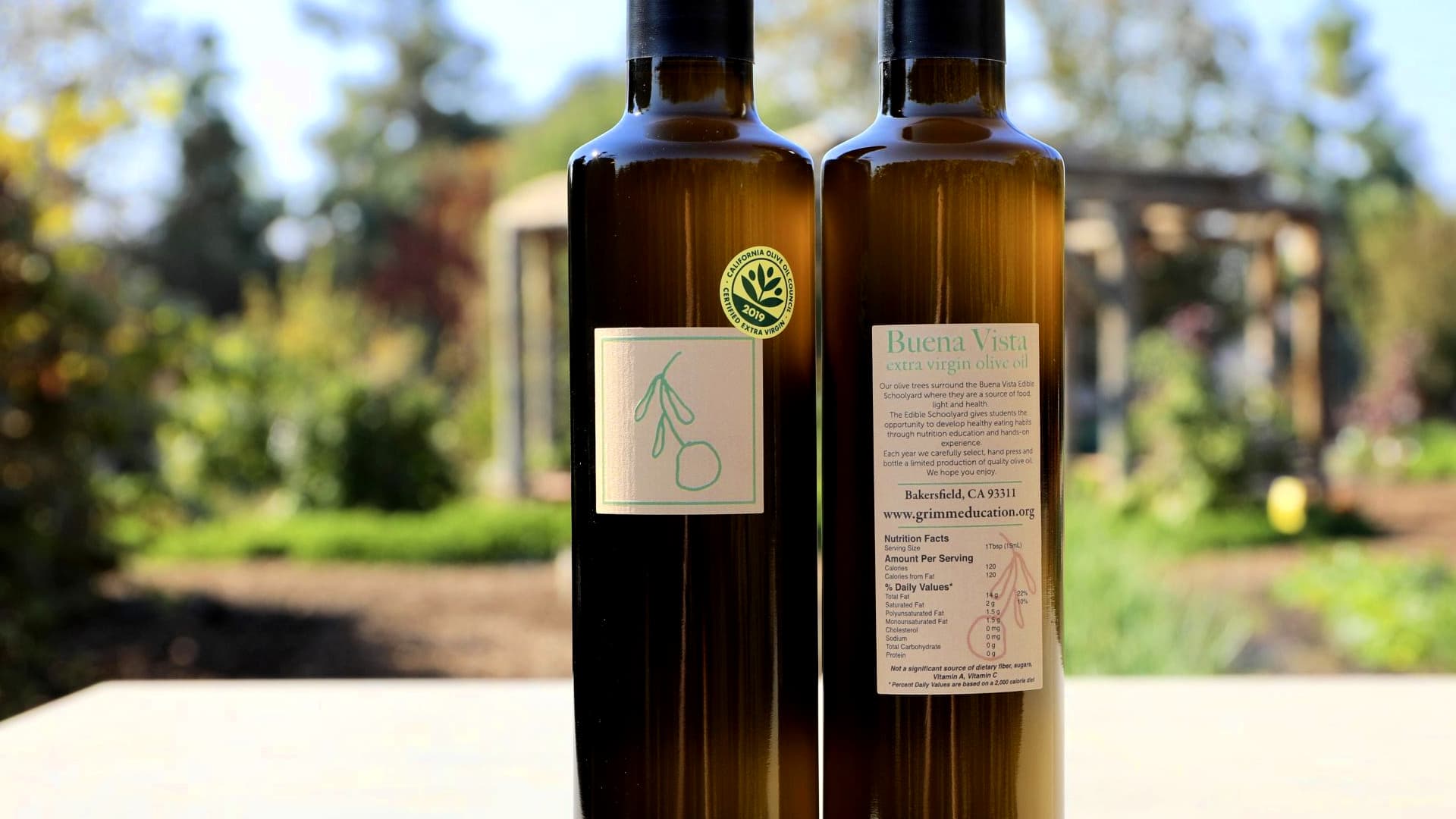
Buena Vista Edible Schoolyard sells extra virgin olive oil made from 370 olive trees grown on school grounds.
At the Edible Schoolyard Kern County, a central tenet of the teaching philosophy is the promotion of healthy eating habits, with a particular emphasis on consuming whole foods.
“While adults may face challenges in altering their dietary routines, we emphasize that it’s never too late to make positive changes, and a key aspect is incorporating more whole foods into one’s diet,” Wilson said.
According to Wilson, identifying and understanding whole foods – those in their original, unprocessed state – is fundamental to fostering a nutritious lifestyle.
The program puts these principles into action by encouraging people of all ages to make conscious choices in favor of whole foods, minimize the consumption of ultra-processed alternatives and actively support local seed-to-table or food literacy programs.
Many local edible education programs, such as these California school programs, are initiated and sustained by community members, often facing financial challenges.
“Local support, whether through volunteering or financial contributions, can significantly impact these programs and contribute to the community’s overall well-being,” Wilson said. “This is especially vital when these programs involve educating children, as they play a crucial role in enhancing the health and knowledge base of the community.”
“Our message is one of lifelong learning about food, fostering healthier eating habits, and actively supporting local initiatives that promote seed-to-table awareness and food literacy,” he concluded. “By doing so, we collectively contribute to individual well-being, community improvement, and a more sustainable and informed approach to food choices.”
Share this article



